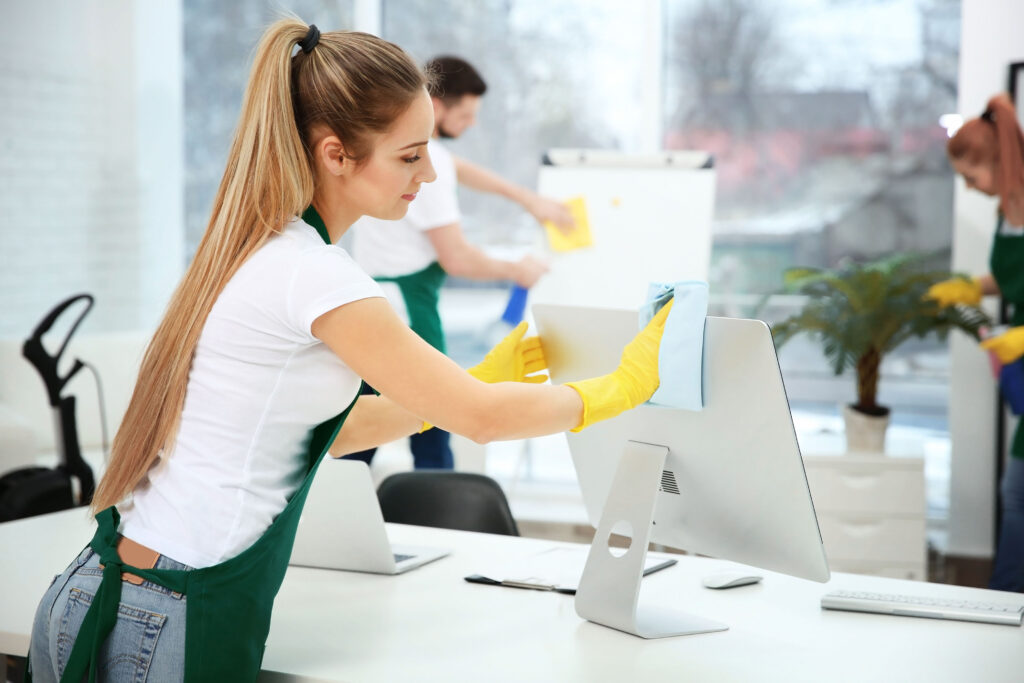In today’s fast-paced world, cleanliness is more than just a necessity—it’s a foundation for healthy living and productive workspaces. Over the years, the cleaning industry in the United States has evolved greatly, not just in methods but also in the tools used. One of the biggest changes we now see is the use of advanced cleaning equipment that is transforming both janitorial and commercial cleaning services.
From high-efficiency vacuum systems to electrostatic sprayers, advanced tools are helping workers clean faster, more deeply, and more safely. These improvements aren’t just helpful for cleaning companies—they’re great for schools, offices, stores, hospitals, and even warehouses that rely on cleanliness to maintain safe and pleasant environments.
Why Traditional Cleaning Methods Weren’t Enough
For many years, mops, buckets, brooms, and basic vacuums were the go-to tools for cleaning. While these are still used today, they have their limitations. Traditional tools often:
- Take more time to use
- Struggle with hard-to-reach areas
- Spread dirt instead of removing it
- Require more physical labor
- Don’t sanitize effectively
With the rise of public health concerns—especially after events like the COVID-19 pandemic—more people and businesses began to understand the importance of deep cleaning, germ control, and indoor air quality.
This shift brought in the need for better equipment that could go beyond surface-level cleaning.
The Role of Advanced Cleaning Equipment
Modern janitorial and commercial cleaning tools are built with speed, precision, and hygiene in mind. They allow workers to clean more space in less time and to do it thoroughly without missing critical areas.
1. HEPA Filter Vacuums
High-Efficiency Particulate Air (HEPA) vacuums trap very small particles like dust, dander, and allergens. These vacuums are especially useful in schools, hospitals, and office buildings where clean air matters most.
2. Electrostatic Sprayers
These devices spray cleaning solutions with a positive charge, so the mist sticks evenly to surfaces—even the hidden ones. It helps sanitize doorknobs, chairs, desks, and shared equipment thoroughly. It’s commonly used in healthcare, offices, and public spaces.
3. Auto-Scrubbers
Floor scrubbers have been upgraded from manual mops to automated machines. These devices scrub, vacuum, and dry the floors in a single pass, saving both time and water. They’re often used in commercial spaces like airports, malls, and warehouses.
4. UV-C Disinfection Devices
Ultraviolet light devices are now used to disinfect rooms by killing bacteria and viruses. These are often found in hospitals, nursing homes, and some schools.
5. Touch-Free Restroom Cleaning Systems
Restrooms are difficult to clean with traditional tools. Now, touch-free cleaning systems pressure-wash and sanitize toilets, sinks, floors, and walls more effectively and quickly.
How This Revolution Helps Cleaning Staff
One of the most important benefits of using advanced cleaning tools is the way they help workers themselves. In janitorial jobs—which are physically demanding—advanced equipment can reduce strain and make tasks more efficient.
Benefits for Cleaning Crews:
- Less bending and scrubbing with automated machines
- Quicker results, especially in large spaces
- Improved safety with fewer slips and exposure to harsh chemicals
- More consistency in cleaning standards
- Professional pride in delivering better results
In many parts of the U.S., including cities like Dallas, Phoenix, or Detroit, cleaning staff are now trained to use advanced tools as part of modern janitorial cleaning services that meet today’s expectations.
How Businesses Benefit from Advanced Commercial Cleaning
Whether it’s an office in Manhattan, a retail store in Austin, or a school in Kansas, businesses want their spaces to be clean, safe, and inviting. Advanced equipment makes this much easier to achieve.
Here’s how it supports affordable commercial cleaning services:
1. Time Efficiency
Machines like ride-on floor scrubbers or wide-area vacuums clean large spaces quickly. This reduces labor time and keeps overall service costs down.
2. Better Results
Advanced tools clean deeper. For example, a HEPA vacuum can remove allergens that standard vacuums leave behind. This means a safer and healthier environment for staff and visitors.
3. Eco-Friendly Practices
Many modern machines use less water, fewer chemicals, and are designed for energy efficiency. This supports green cleaning and lowers utility bills.
4. Consistency
When machines handle most of the cleaning steps, it reduces the chance of human error. That means your workspace looks and feels cleaner every day, not just after a deep clean.
Impact on Health and Productivity
Clean spaces are healthier, and healthier spaces make people feel better and work better. Using advanced cleaning tools contributes to:
- Improved indoor air quality, which reduces allergies and asthma
- Lower chances of infection spread, especially in flu season
- Cleaner restrooms, which affects employee satisfaction
- A professional appearance, boosting customer confidence
In offices, studies show that employees take fewer sick days and feel more comfortable in clean, organized environments. In schools, students focus better and miss fewer days when classrooms are clean.
Supporting the Future of Cleaning Services
As more Americans return to in-person work and public spaces, the demand for high-standard cleaning continues to rise. Both modern janitorial cleaning services and affordable commercial cleaning services are stepping up by using better equipment to meet these new expectations.
What once took hours now takes minutes. What once required harsh chemicals can now be done with less waste. What once seemed like a luxury—like UV sanitization or electrostatic spraying—is becoming a standard in offices, schools, medical clinics, and retail stores across the country.
Final Thoughts
Advanced cleaning equipment is changing the way janitorial and commercial services work in the United States. From increasing efficiency and reducing health risks to supporting worker safety and cutting costs, this technology is helping every part of the cleaning industry grow.
As businesses and public spaces continue to demand higher hygiene standards, the adoption of these tools becomes not just helpful—but necessary. And thanks to smart service providers offering modern janitorial cleaning services and affordable commercial cleaning services, even smaller businesses can access the benefits of this revolution.
In the end, clean spaces are not just about looks—they’re about health, trust, and a better quality of life.



